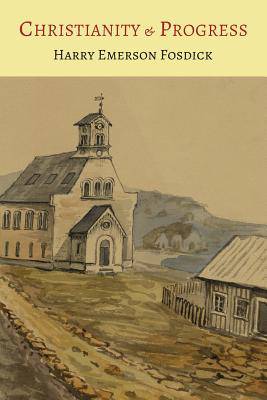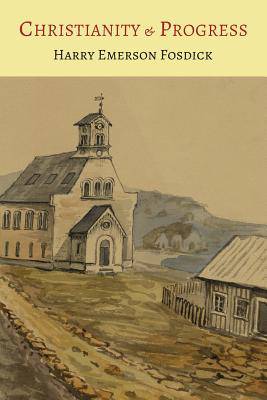
Je cadeautjes zeker op tijd in huis hebben voor de feestdagen? Kom langs in onze winkels en vind het perfecte geschenk!
- Afhalen na 1 uur in een winkel met voorraad
- Gratis thuislevering in België vanaf € 30
- Ruim aanbod met 7 miljoen producten
Je cadeautjes zeker op tijd in huis hebben voor de feestdagen? Kom langs in onze winkels en vind het perfecte geschenk!
- Afhalen na 1 uur in een winkel met voorraad
- Gratis thuislevering in België vanaf € 30
- Ruim aanbod met 7 miljoen producten
Zoeken
Omschrijving
2014 Reprint of 1922 Edition. Full facsimile of the original edition, not reproduced with Optical Recognition Software. Fosdick, a writer and preacher of wide influence, developed his ideas in New York City in the 1920s-1940s. A champion of liberal Protestant theology, he was also associated with the Union Theological Seminary. "Christianity and Progress" is an important book in the development of Fosdick's thought. In the short preface Fosdick sets the tone for the book by describing the progress of the nineteenth century with the words of Renan: "the substitution of the category of "becoming" for "being, of the conception of relativity for that of the absolute, of movement for immobility." The book itself develops this theme by assuming that the idea of progress-in both the material and social senses-had become not only the dominant but also the correct view of history. Fosdick argues that Christianity is intrinsically a progressive religion, and that therefore modern progress and Christianity are natural partners.
Specificaties
Betrokkenen
- Auteur(s):
- Uitgeverij:
Inhoud
- Aantal bladzijden:
- 248
- Taal:
- Engels
Eigenschappen
- Productcode (EAN):
- 9781614276814
- Verschijningsdatum:
- 1/08/2014
- Uitvoering:
- Paperback
- Formaat:
- Trade paperback (VS)
- Afmetingen:
- 152 mm x 229 mm
- Gewicht:
- 367 g

Alleen bij Standaard Boekhandel
+ 25 punten op je klantenkaart van Standaard Boekhandel
Beoordelingen
We publiceren alleen reviews die voldoen aan de voorwaarden voor reviews. Bekijk onze voorwaarden voor reviews.









